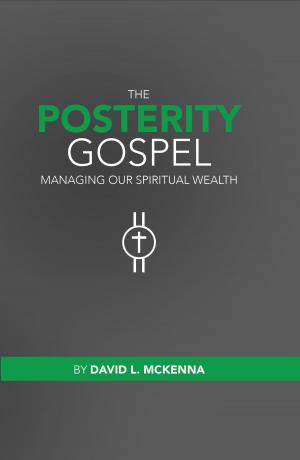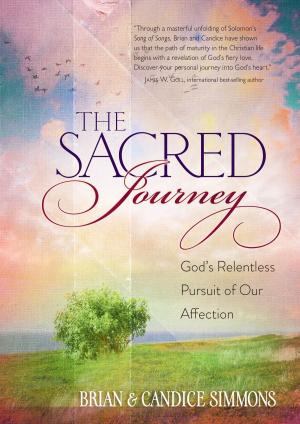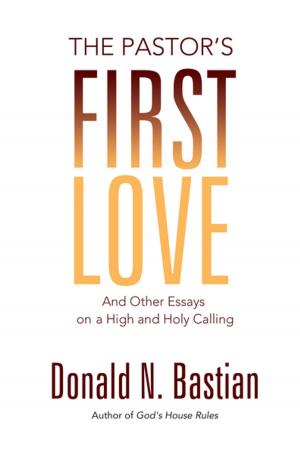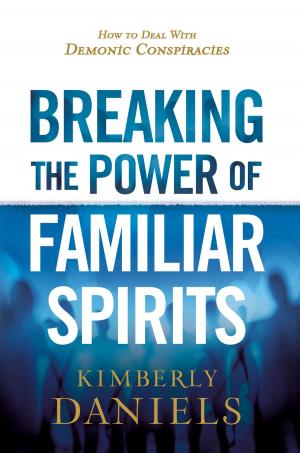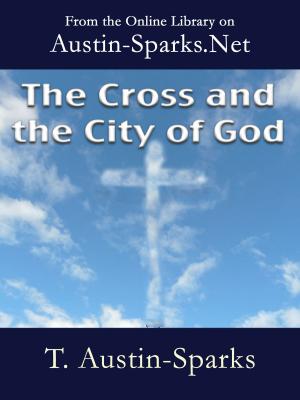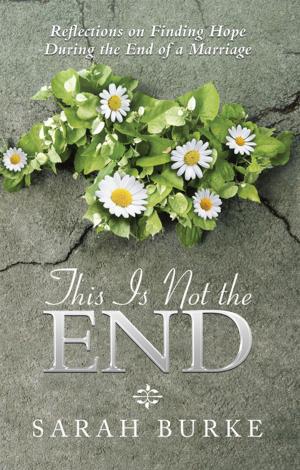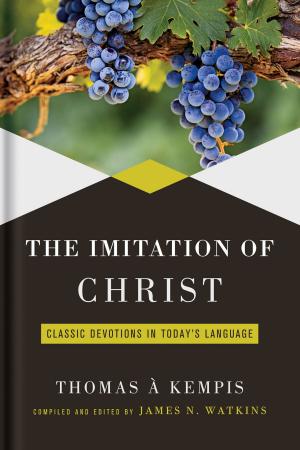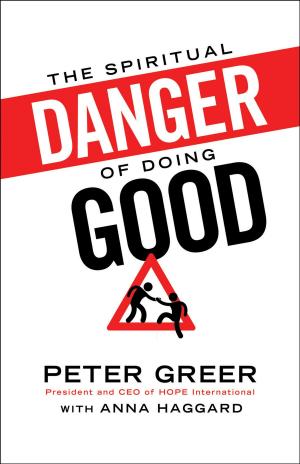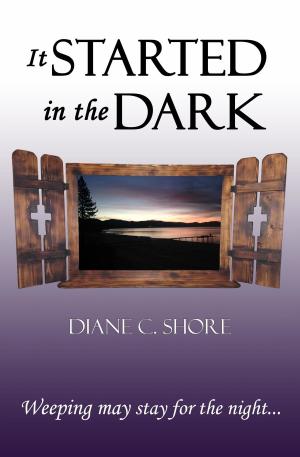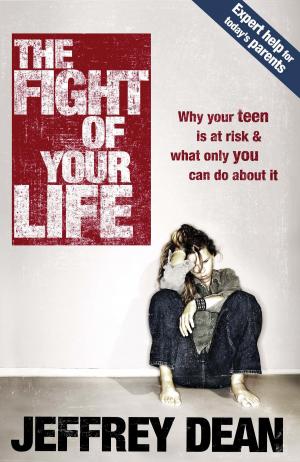Love Deeply, Think Deeply, Live Dangerously
Nonfiction, Religion & Spirituality, Christianity, Christian Life| Author: | Mark Aaron Quick | ISBN: | 9781311506689 |
| Publisher: | Mark Aaron Quick | Publication: | May 15, 2016 |
| Imprint: | Smashwords Edition | Language: | English |
| Author: | Mark Aaron Quick |
| ISBN: | 9781311506689 |
| Publisher: | Mark Aaron Quick |
| Publication: | May 15, 2016 |
| Imprint: | Smashwords Edition |
| Language: | English |
In his thought-provoking new book, award-winning author Mark Aaron Quick explores the dynamic correlation between how Christians think with how they react to life situations. Love Deeply, Think Deeply, Live Dangerously asks the question: why do some Christians struggle with being in the world but not of the world? Examples from a variety of topics reveal how God’s Word sheds light on which priorities, beliefs, and values are safe to hold and which ones are spiritually dangerous. 13 compelling topics illustrate a common motif: God is the ultimate Agent of Change. If you change what you think, you can change how you love. If you change how you love, then you’ll change why you live.
Chapter Summaries
Chapter 1 The Art of Living Dangerously deals with worldly conformity. The world is a dangerous place. Some dangers can destroy us, but others serve to make us stronger. The art of living dangerously has to do with embracing the type of dangers that build us up.
Chapter 2 Well, Bless My Soul takes a look at how God blesses us. A rationale is offered detailing why blessing others and blessing God should be our focus rather than just looking at our own personal blessings.
Chapter 3 Living Free explores the complexity of freedom by defining it from a biblical perspective. In a world enslaved by sin, Christians are free to show others how to find and experience the freedom available through God’s grace. Our relationship with God, along with how we “think” about freedom, determines how free we truly live.
Chapter 4 Communication 101 explores four questions: How does God communicate with us? How do we communicate with God? How should we communicate with other believers? How should we communicate with unbelievers? Even when we communicate imperfectly, we still communicate. This chapter addresses how communication can be improved.
Chapter 5 Human Pets Syndrome and Personal Identity evaluates what it means to be human. This chapter challenges current beliefs about the equality of animals and people. Our beliefs about our personal identity influence the way we live our lives. The author probes how secular “Elevator Theology” relates to the way people rationalize their abortion arguments.
Chapter 6 Christian Education looks at education from an outcome based perspective. The author examines mentoring, parenting responsibilities, and education from both the pulpit and the classroom.
Chapter 7 Do the Math asks an intriguing question: what can Christians learn from understanding how mathematicians approach abstract ideas? Seeing things from different angles may benefit our overall perception of theological concepts. Metaphysical concepts (such as the trinity) are seldom easy to comprehend. Some truths we seek to apply linearly in a step-by-step manner. Others we analyze globally as we intuitively apply them to our worldview.
Chapter 8 Why We Can Never “Prove” the Existence of God to Skeptics delves into the messy arena of witnessing. An argument is presented that while we witness to both the mind and the heart of unbelievers, our primary target needs to be finding ways to soften a person’s heart first.
Chapter 9 Play by the Rules takes a look at WHY God issued commandments. Most of us don’t like to be told what to do. So why did God give us commandments? An argument is developed showing how following God’s “rules” brings about wonderful results.
Chapter 10 Keep God in the Center of Your Thoughts and Actions outlines what the number one priority for Christians should be.
Chapter 11 The Lone Ranger Rides Again ponders the theme of readiness. Readers learn how people who are “ready” to be used can obey the Lord in a timely and spontaneous manner.
Chapter 12 Myth Busters examines evolution, the secular idea that Christianity itself is just a myth, and the ubiquitous myth of tolerance.
Chapter 13 Our Labor of Love explores the concept of work from a biblical perspective and whether or not some professions are “more godly” than others
In his thought-provoking new book, award-winning author Mark Aaron Quick explores the dynamic correlation between how Christians think with how they react to life situations. Love Deeply, Think Deeply, Live Dangerously asks the question: why do some Christians struggle with being in the world but not of the world? Examples from a variety of topics reveal how God’s Word sheds light on which priorities, beliefs, and values are safe to hold and which ones are spiritually dangerous. 13 compelling topics illustrate a common motif: God is the ultimate Agent of Change. If you change what you think, you can change how you love. If you change how you love, then you’ll change why you live.
Chapter Summaries
Chapter 1 The Art of Living Dangerously deals with worldly conformity. The world is a dangerous place. Some dangers can destroy us, but others serve to make us stronger. The art of living dangerously has to do with embracing the type of dangers that build us up.
Chapter 2 Well, Bless My Soul takes a look at how God blesses us. A rationale is offered detailing why blessing others and blessing God should be our focus rather than just looking at our own personal blessings.
Chapter 3 Living Free explores the complexity of freedom by defining it from a biblical perspective. In a world enslaved by sin, Christians are free to show others how to find and experience the freedom available through God’s grace. Our relationship with God, along with how we “think” about freedom, determines how free we truly live.
Chapter 4 Communication 101 explores four questions: How does God communicate with us? How do we communicate with God? How should we communicate with other believers? How should we communicate with unbelievers? Even when we communicate imperfectly, we still communicate. This chapter addresses how communication can be improved.
Chapter 5 Human Pets Syndrome and Personal Identity evaluates what it means to be human. This chapter challenges current beliefs about the equality of animals and people. Our beliefs about our personal identity influence the way we live our lives. The author probes how secular “Elevator Theology” relates to the way people rationalize their abortion arguments.
Chapter 6 Christian Education looks at education from an outcome based perspective. The author examines mentoring, parenting responsibilities, and education from both the pulpit and the classroom.
Chapter 7 Do the Math asks an intriguing question: what can Christians learn from understanding how mathematicians approach abstract ideas? Seeing things from different angles may benefit our overall perception of theological concepts. Metaphysical concepts (such as the trinity) are seldom easy to comprehend. Some truths we seek to apply linearly in a step-by-step manner. Others we analyze globally as we intuitively apply them to our worldview.
Chapter 8 Why We Can Never “Prove” the Existence of God to Skeptics delves into the messy arena of witnessing. An argument is presented that while we witness to both the mind and the heart of unbelievers, our primary target needs to be finding ways to soften a person’s heart first.
Chapter 9 Play by the Rules takes a look at WHY God issued commandments. Most of us don’t like to be told what to do. So why did God give us commandments? An argument is developed showing how following God’s “rules” brings about wonderful results.
Chapter 10 Keep God in the Center of Your Thoughts and Actions outlines what the number one priority for Christians should be.
Chapter 11 The Lone Ranger Rides Again ponders the theme of readiness. Readers learn how people who are “ready” to be used can obey the Lord in a timely and spontaneous manner.
Chapter 12 Myth Busters examines evolution, the secular idea that Christianity itself is just a myth, and the ubiquitous myth of tolerance.
Chapter 13 Our Labor of Love explores the concept of work from a biblical perspective and whether or not some professions are “more godly” than others

